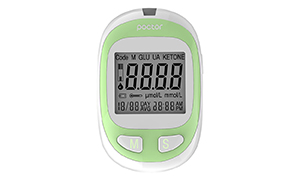Basic Knowledge about POCT Test
-
2021-08-16
-
LEPU

1. What is test POCT?
Point-of-care testing (POCT) is a form of testing in which medical care is provided for analysis near or close to the patient. Various definitions are provided in the medical/scientific literature. Alternative descriptions include near-patient testing (NPT), bedside testing, doctor's office testing (POL), off-site testing, alternative on-site testing.
The international standard ISO 22870, Point of Care Testing (POCT) requires quality and competence, and defines POCT testing as "tests performed near or on-site", the results of which may lead to changes in patient care.
2. The POCT test is widely used
This definition of POCT test provides an accurate, but rather general description of the application of POCT. In practice, POCT can be performed in many places, including home use, self-test; pharmacy; paramedic support, ambulance; nursing home or elderly care center; general medical practice, primary care (American term: POL, physician office laboratory); rural (remote) hospital or health center; large hospital Intensive care facilities (ED, ICU, CCU, etc.); wards or hospital clinics; sports clinics; workplace drug screening.
The type of point-of-care testing and the way a specific point-of-care testing device is used in each of the above situations may be different, the frequency of testing may be different, and the testing requirements or applicability will almost certainly be different.
In addition, if testing is required for diagnosis, monitoring, or screening, different testing equipment or testing systems may used. The required suitability can also determine the quality management procedures, as well as the specific requirements for quality control (QC) and external quality assessment (EQA).
Therefore, when discussing the application of POCT, it is also necessary to consider the specific circumstances under which a given test or device is used. POCT is not a single unified entity as different situations may require different solutions
